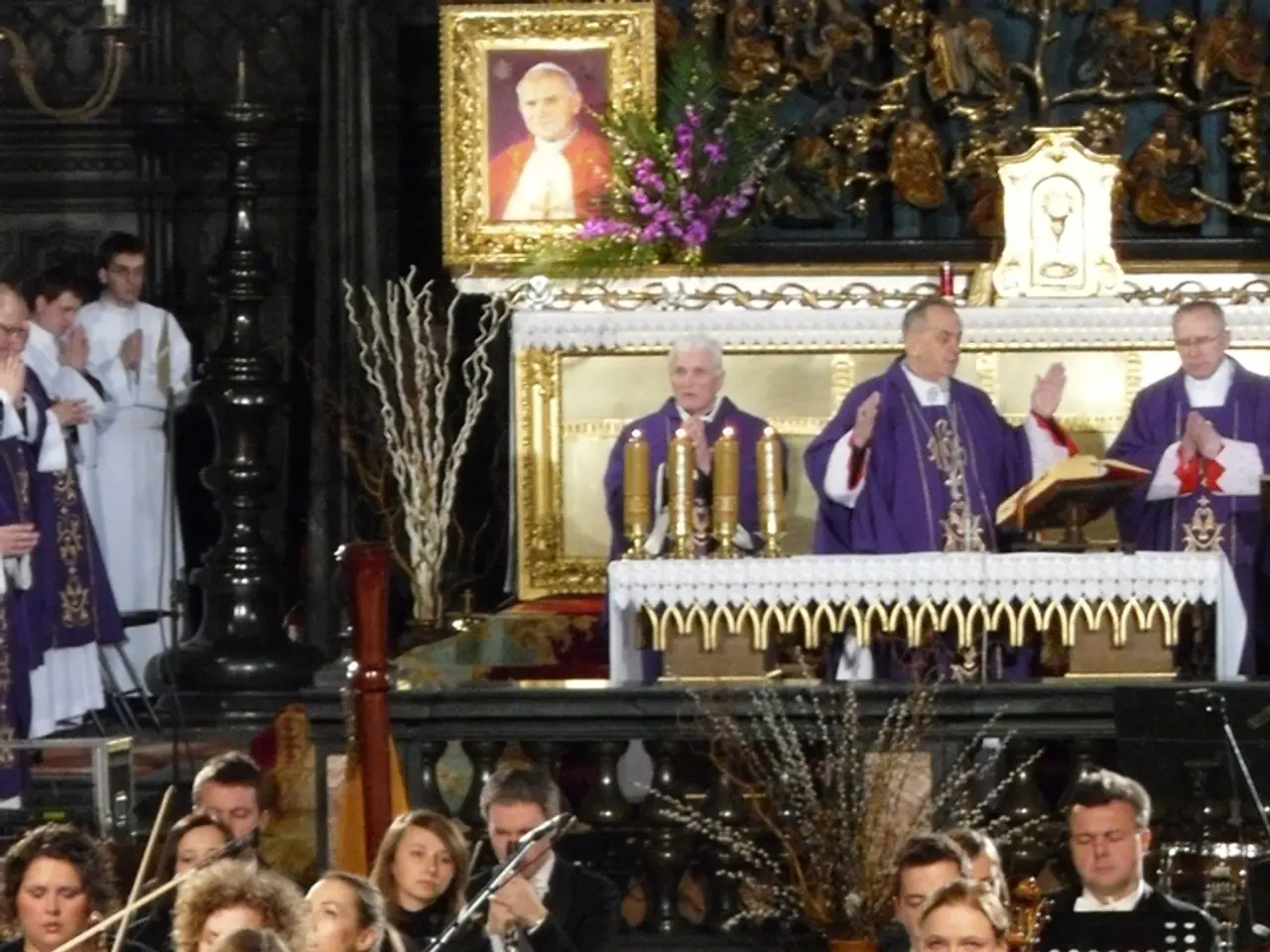Events and Studies Expand Understanding of the Realm of American Jewish Music
Shaping the Sounds of American Jewish Music: A Journey Through Time and Talent
American Jewish music has been enriched by a diverse array of composers, each bringing their unique personal stories, influences, and contributions to the forefront. Three influential figures in this field are Leonard Bernstein, Abraham Zevi Idelsohn, and Aaron Copland.
Leonard Bernstein, born in Massachusetts to Ukrainian-Jewish parents, was a pioneering composer and conductor who seamlessly blended diverse genres, including classical, Jewish liturgical themes, and popular music. His early exposure to music at his Boston synagogue played a significant role in his development as a musician. Despite initial family opposition, Bernstein persisted, and his compositions, such as Symphony No. 3, "Kaddish," and Chichester Psalms, integrate Jewish motifs, making him a seminal figure in American Jewish music as well as American classical and popular music.
Abraham Zevi Idelsohn, a Latvian-born cantor and ethnomusicologist, is regarded as the founder of modern Jewish musicology. After studying in Germany, Idelsohn moved to Jerusalem where he founded the Institute for Jewish Music. His research focused on the diverse musical traditions of Jewish communities worldwide, and he compiled the extensive Thesaurus of Hebrew Oriental Melodies. Idelsohn's work showed the underlying unity and shared characteristics of Jewish liturgical music and influenced later musicological and compositional work in Jewish music. He also composed the first Hebrew opera, advancing Jewish musical expression in the modern era.
Aaron Copland, though more broadly celebrated as an American composer, was of Jewish descent and achieved a distinctive compositional voice that characterised American themes in a modern style. His works, such as Appalachian Spring and Fanfare for the Common Man, reflected an expressive blend of accessibility and sophistication that shaped American music identity, indirectly influencing Jewish composers and the broader American Jewish musical landscape by exemplifying the integration of American folk and modernist elements.
Contemporary contributors such as Cantor Jonathan Comisar and Cantor Benjie Ellen Schiller continue this legacy, creating music that engages Jewish sacred themes with modern sensibilities and serving as mentors who nurture new generations of composers in Jewish music today.
A recent study by graduate student researcher Kacie Morgan analysed the influencers and interrelationships of composers across generations in American Jewish Music. Morgan's work involved creating a visual mapping of the relationships using oral histories of twentieth-century Jewish composers and cantors from the Milken Archive. The symposium aimed to grow the academic study of the arts from an interdisciplinary perspective and to disseminate knowledge about Jewish culture to the general public.
Ray Ace, another graduate student researcher, focused on the contributions of a specific composer, Max Helfman. Ray's work, supported by a University of California Humanities Research Initiative Grant, took place in a small, attic-like space at Sinai Temple, where he compiled a list of works by Helfman, some of which are only available in the Temple Archive. A concert featuring Max Helfman's music will take place at Sinai Temple in the spring of 2019, supported by the Milken Fund.
The Milken Fund, a significant supporter of these efforts, co-sponsored The Second International Symposium of the Arts of Performance and Jewishness in Buenos Aires, Argentina. Israeli musicologist Edwin Seroussi delivered the keynote address at the symposium. Lillian Wohl, a Post-Doctoral Scholar, served on the organizing committee and presented at the event.
As these composers and researchers continue to shape the future of American Jewish music, their work serves as a testament to the richness and diversity of this unique musical tradition.
[1] Bernstein, Leonard (1918–1990) [2] Idelsohn, Abraham Zevi (1882–1938) [3] Copland, Aaron (1900–1990) [4] Max Helfman [5] West Side Story [6] The Milken Archive of Jewish Music [7] Sinai Temple, Los Angeles [8] Lowell Milken Fund for American Jewish Music [9] University of California Humanities Research Initiative
[1] Integrating education-and-self-development with his passion for music, Leonard Bernstein underwent online-education and self-study at a young age, shaping his unique compositional voice that enriched American Jewish Music.
[2] A pioneer in the field of musicology, Abraham Zevi Idelsohn not only focused on entertainment, such as composing the first Hebrew opera, but also dedicated his work to the academic study, learning, and documentation of a diverse range of Jewish musical traditions worldwide.




